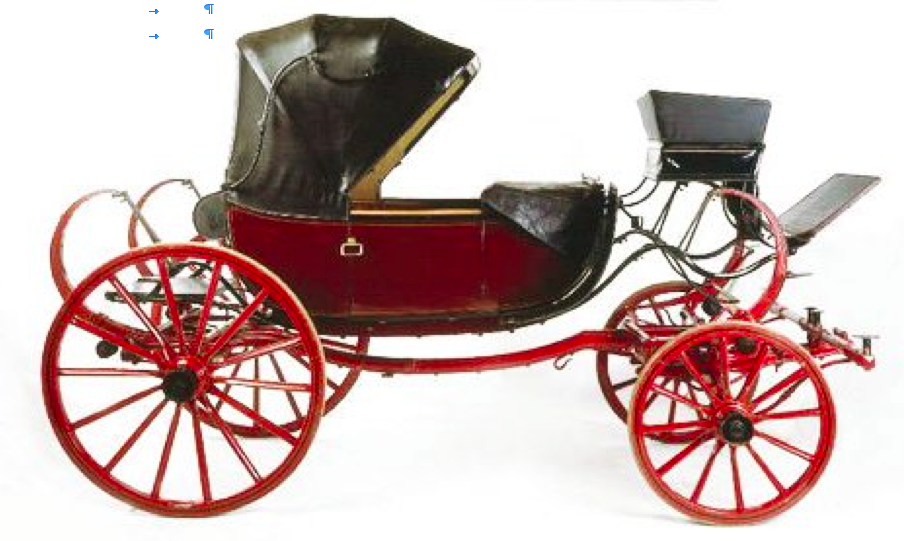A million years ago, I picked up The Duke’s Tattoo by Miranda Davis because I read some sniggering reviews about it: get a load of this. And it’s true, and funny, that the opening action is one of the heroine sedating and then permanently inking a certain peer’s unmentionables, and then how their rivalry and his revenge turns into love, &c &c. Oh, and all of this takes place in a Regency romance, I believe in Bath. It’s pretty much the best. Sure, whatever, none of that is likely, but neither is getting lucky in a barouche, and that happens in Regency romances all the freaking time.

Seriously, you’re not getting laid in this comfortably even in modern clothing, let alone the yards of fabric those poor assholes had to wear in the Regency.
Anyway, Davis’s almost overblown prose — she has an excellent vocabulary and isn’t afraid to use it — and sideways sense of humor completely won me over.
But then came the The Baron’s Betrothal, which, while written in the same winsome prose, was a tiresome will-they-won’t-they that I didn’t appreciate. Admittedly, I almost never appreciate a will-they-won’t-they, but then The Baron’s Betrothal also was thin with the humor that so radiated from The Duke’s Tattoo, so I don’t think it wasn’t just my predilections talking. Fast forward several years, and Davis’s newest book, His Lordship’s Last Wager, pops up on one of my if-you’ve-read-this-then situations, and I figured I’d give her another go. I mean, even the book I didn’t like wasn’t bad, just not to my tastes.
Boy, but I found His Lordship’s Last Wager charming. The set up is ludicrous, again: a zesty young woman gulls a lord-type into helping her transport a trained bear to Ireland. Look, I’m not going to explain how such a situation comes to be, partially because I can’t remember exactly. Like the lord-type, the reader finds herself wondering what the hell happened to result in a trip through the aqueducts and canals of England of yore. I was super into it, because, wait, lemme tell you a story.
My great-grandmother, the one I’m named after, was born in the US just months after her parents stepped off the boat. (I think assholes would call her an anchor baby.) Though we don’t know for sure, my family suspects that great-great-grandpa knocked up the neighbor girl in a small town in Wales, and due to the fact that he was an inveterate alcoholic (ah, the Welsh), the families sent them on their way to America. She managed to have another child, a boy, before she succumbed to Industrial Revolution Pittsburgh. Great-grandma and her brother were settled into an orphanage — her father being too drunk to care for them — but not after the family in Wales entreated her and her brother to “come home”. The trans-Atlantic voyage was too scary for a young girl, so they stayed.
Fast forward many moons, and my mother took that faded correspondence, and tried to find our living relatives in Wales. Several things hampered this: the family names were Jones and Edwards, which are about as common as you can get; the family wasn’t Church of Wales, which would be the establishment church, but Baptist; and the Baptist church in the area burned down in the early 70s, so all the records were ash. We found the house on a trip to Froncysyllte when I was a teenager, and the current owners were kind enough to let us look at the deeds (which corroborated pretty much all of the family lore), but it was a dead end.
But we were in the area, so we touristed around for a while. One of our more memorable visits was to the Pontcysyllte Aqueduct, which is still functional, a crazy waterway strung between high Welsh hills. Observe:

Though I don’t think our intrepid Regency lovers plied this waterway, much of the action of the novel takes place on the canals that crisscrossed Britain, moving goods and people just like the railroads. Davis notes that there is little contemporary description of the canals in their heyday in the 1800s, as they were largely commercial. Who writes stories about truck stops or container ships? So too, back then. But they’re fascinating places, and it was entirely enjoyable to read a Recency romance that took place on the rough waterfront instead of the cultivated lawn.
Obviously, this is still a romance, so it’s not going to get too icky or realz. And that’s fine. I’m not usually reading Regency romance for the articles, and I don’t need some big bummer to prove the situation serious. That said, this novel was charming and lively, funny and unusual, and totally worth it for the reverie about my lost family alone.